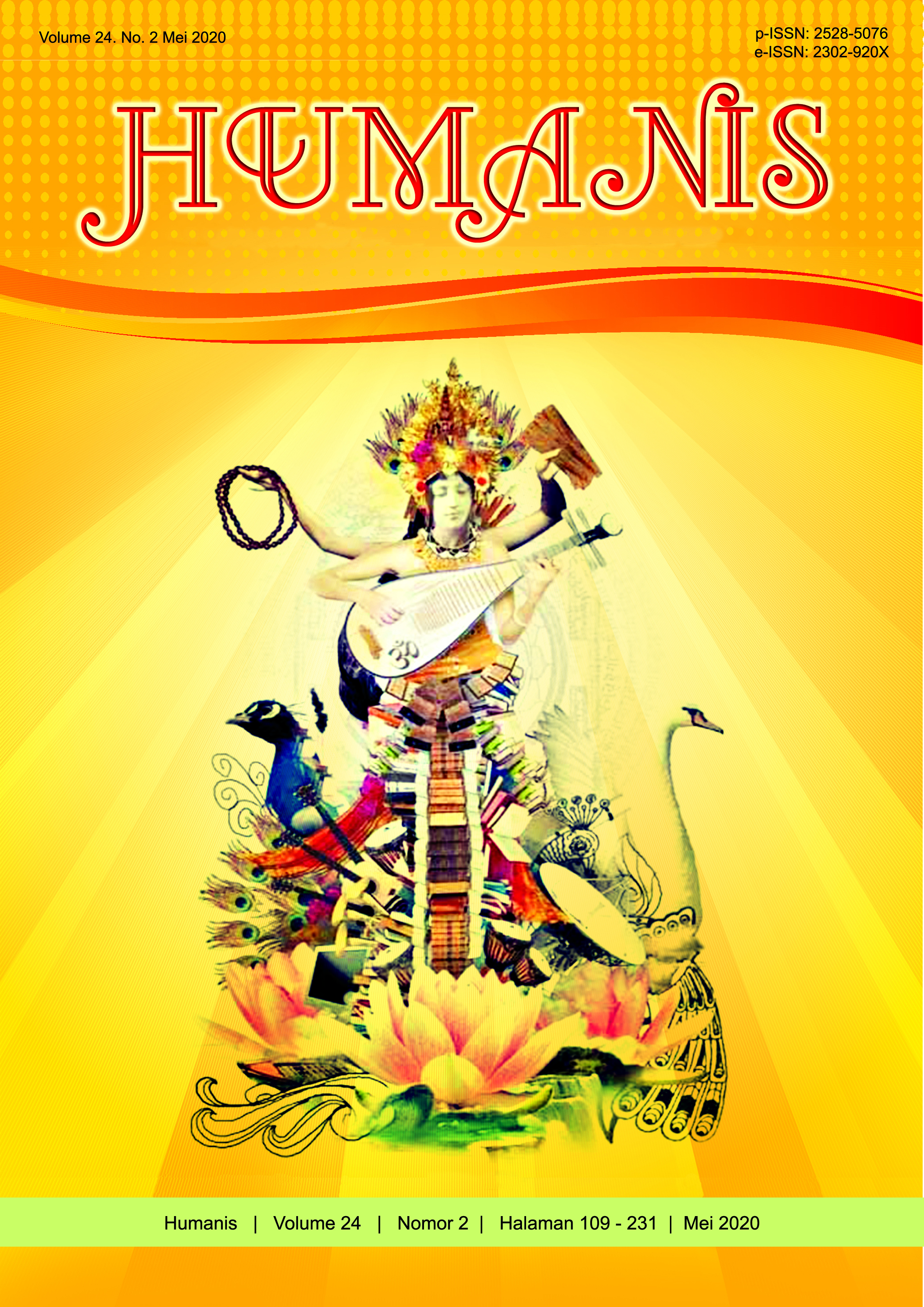Peran Gender dalam Ritus Kusu Bue
Abstract
Kusu bue rite’s a rite performed by women who have experience menstruation. Women will stay in a small house, called sao are. They cooperate with each other in every process of activity. The role of gender in the kusu bue rite also has implications for the Dona community. The formulation of the problem in this study are (1) how’s the role of gender in the implementation of the kusu bue ? (2) What are the implications of gender roles in the implementation of the kusu bue of the kusu bue rite to the Dona community? This study uses theories from Marwell and theories about the transitional rites and the inauguration ceremony of Van Gennep. Ethnographic research models,including data collection techniques through observation, interviews, literature, studies, and data analysis field. The results explained that the kusu bue ritual process lasted for eight days and seven nights. The procession begins with preparation, hen enters theses’e ritual leadig to Soromazi, to Lole Sao Are. On the second day the community performed the Waju Pare Kobho. On the third and sixth day, why would they goon a journey to find the needs of the girls. Then on the seventh day the community carried out the Bora Raa Weti and Woke Tewu rituals. On the last day the kusu bue girls will have a graduation party or wela ripe. The result of this rite to the Dona community.These implications are the implication in the social, education, deliberation,and consensusand religious fields.
Downloads
References
Arief, Mufardisah. 2018. “ Hubungan Gaya Belajar Berdasarkan Gender Dengan Hasil Belajar Pada Mahasiswa Teknologi Pendidikan Universitas Negeri Malang” Malang: Jurnal Kajian Teknologi Pendidikan. Vol 1 No. 1: 1-2
Asmarani, Ratna. 2017. “Perempuan Dalam Perspektif Kebudayaan” Semarang: Jurnal Sabda. Vol 12 No 1:3-4
Boediarsih. 2016 “ Persepsi Remaja tentang Peran Gender dan Gender Seksualitas di Kota Semarang”. Semarang: Jurnal Promosi Kesehatan Indonesia Vol. 11 No 1: 29-30
Dhogo, Cristologus. 2009. SU’I UWI “Riitus Budaya Ngada dalam Perbandingan dengan Perayaan Ekaristi”.Maumere : Ledalero
Efendy, Rustan. 2014 “ Kesetaraan Gender Dalam Pendidikan” Parepare: Jurnal Al-Maiyyah Vol. 7 No. 2: 1-2
Lestari, Dyah Purbasari Kusumaning Putri. 2015. “ Pembagian Peran Dalam Rumah Tangga Pada Pasangan Suami Istri Jawa” Surakarta: Jurnal Penelitian Humaniora Vol. 16 No.1: 6-7
Patmisari, Ida Ayu. 2017 “Pendidikan Nilai Agama Hindu dalam Upacara Menek Bajang di Desa Yehembang Kecamatan Mendoyo Kabupaten Jembrana” Denpasar: Jurnal Penelitian Agama Hindu. Vol1 No.2 : 189-190.
Paul Ardt, SVD. 2009. Masyrakat Ngada, Flores : Nusa Indah
Probosiwi, Ratih. 2015 “ Perempuan Dan Perannya Dalam Pembangunan Kesejahteraan Sosial” Yogyakarta: Jurnal Kajian Ilmu Admnistrasi Negara Vol. 3 No. 1: 7-8
Puspitawati, Herien. 2010. “Persepsi Peran Gender Terhadap Pekerjaan Domestik Dan Publik Pada Mahasiswa IPB” Purwokerto: Jurnal Studi Volume 5 No. 1: 5-6
Rostiyati, Ani. 2017 “PeranPerempuan Pada Upacara Tradisional Rahengan di Desa Citatah, Kabupaten BandungBarat” Bandung: Jurnal Peneliti Utama Balai Pelestarian dan Nilai Budaya Jawa Barat.Vol 9 No 3: 359-360.
Suardi. 2016 “ Implikasi Sosial Diskriminasi Gender” Makasar: Jurnal Sosiologi Pendidikan Humanis. Vol 1 No. 1
Widayani, Ni Made Diska. 2014 “Kesetaraan Dan Keadilan Gender Dalam Pandangan Perempuan Bali: Studi Fenomenologis Terhadap Penulis Perempuan Bali” Semarang: Jurnal Psikologi Undip Vol. 13 No 2: 150-151
Yohanes Vianey, Watu. 2010. Pata Dela. Kupang : Gita Kasih


















